
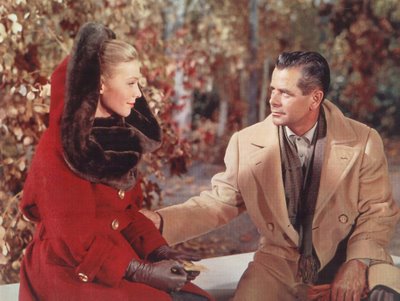
Honorable Failures --- The Four Horsemen Of The Apocalypse
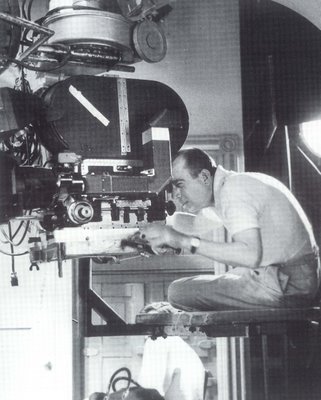
If any one film sounded the death knell for whatever was left of Hollywood’s studio system in the early sixties, The Four Horsemen Of The Apocalypse was it. Released (finally) in February of 1962, it harked back twenty years to the sort of wartime melodramas Warners used to turn out so expertly, but those pictures worked because the reality of war itself gave them an urgency The Four Horsemen would lack. Made in the sixties, it was not of the sixties. The resulting disaster helped bring Metro to its knees and greased the skids for any number of forthcoming executive ousters. The Four Horsemen would be Vincente Minnelli's valiant gesture toward the kind of dynamic emotional drama that had long been his specialty, but like Raoul Walsh with A Distant Trumpet, he’d now find himself a prophet without honor in a confused and chaotic industry. The Four Horsemen, along with A Distant Trumpet, is an unfairly neglected picture whose reputation has run on the momentum of negative reviews since it opened forty-four years ago, and that blight’s been further maintained by pan-and-scan bowdlerizations on television and video. The release of a French DVD finally gives us a decent presentation in scope and stereo. I watched it and liked it. To my mind, Vincente Minnelli can do no wrong. He’s up there with Hitchcock, Hawks, Ford, and yes, Raoul Walsh. Any opportunity to see one of Minnelli’s films in its proper ratio is not to be missed, and that particularly applies to so-called disasters like The Four Horsemen Of The Apocalypse.
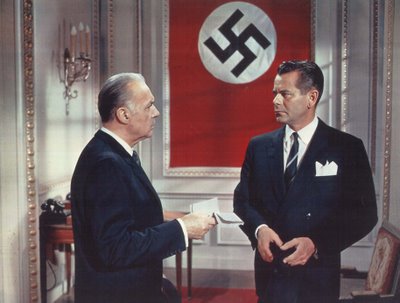
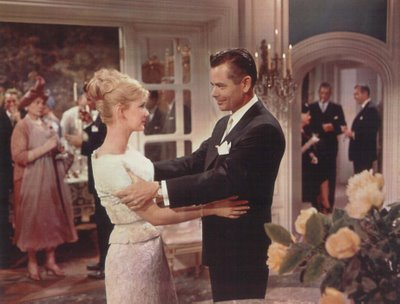
This version was remade form the silent blockbuster that launched Rudolph Valentino. After Ben-Hur’s success in 1959, it may not have seemed such a bad idea to rejuvenate another aged property, especially one the public had gone for in such a big way. Casting Glenn Ford in the lead was pure expediency. He’d signed a multi-picture deal with MGM and his name would insure bookings. Besides, his fee of $150,000 was reasonable, if not a bargain. The original had dealt with World War One. That wouldn’t do now, so Metro updated it to WWII. Minnelli had reservations about that, but elected not to rock the boat. He’d been rushed into the project very soon after Home From The Hill, and didn’t like the idea of beginning with an unfinished script. If the picture had to be made, I decided it should be as stunning visually as I could make it (and yes, he succeeded). Five months of filming in France helped rocket the costs to nearly seven and a half million. Now that Minnelli was past the harried pre-production, he was determined not to be rushed in shooting. The director would nit-pick at everything. A second unit man was Hank Moonjean, and he’s just out with a memoir of his years with the studios. Moonjean reveals a lot about Minnelli’s sometimes frustrating working methods (particularly on The Four Horsemen) in Bring On The Peacocks, which you can get HERE. The producer was Julian Blaustein, who by all accounts was out of his depth with a picture of this size. He’d previously been at Fox and had done The Day The Earth Stood Still, among others, but never anything on such a grand scale as The Four Horsemen. He and Minnelli went to war, and studio chief Sol Siegel not surprisingly sided with the director. French authorities, for whom the scars of war were still fresh, took umbrage when hundreds of extras in German uniforms crowded the boulevards in a recreation of the Nazi’s march on Paris.
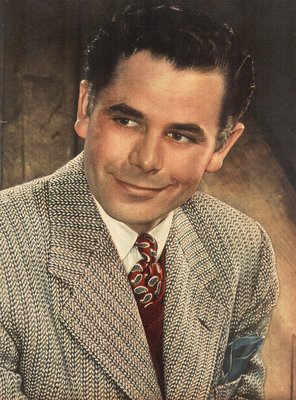
Ingrid Thulin was a Euro actress who’d acquitted herself well in Ingmar Bergman’s art-house fave, Wild Strawberries, but following that up with a lead opposite Glenn Ford was clearly ill advised. So was Metro’s signing her to a five-year pact --- the object being to introduce the next Ingrid Bergman to American audiences. But were we looking for another Bergman? Their quest might better have been to find more Sandra Dees, and indeed The Four Horsemen had even one of those, in the person of Yvette Mimieux, freshly manufactured back in Culver City and enjoying her five or so years of ingenue prominence. As for Ingrid Thulin, her impenetrable accent would flummox preview audiences already disquieted by the over-length of The Four Horsemen, and in a move far less common in those days than now, most of her dialogue was overdubbed by veteran Angela Lansbury. The picture played surprisingly well in Europe, and reviews were uniformly good, but over here it was a real black eye for Metro and Minnelli. Domestic rentals were a horrific $1.5 million (even Flipper and Captain Sindbad would come back with more). Foreign was better at $2.5, but the final loss was breathtaking --- $5.9 million. It took another disastrous remake, Mutiny On The Bounty, to surpass that record with a loss of $15.1 million. Is it any wonder The Four Horsemen has such a blighted reputation? Some movies benefit when they start off at a disadvantage. Against lowered expectations, they can often prove pleasant surprises. Of course, a good Minnelli picture is never unexpected, and this one’s definitely worth another look. The French DVD is available HERE.
And, yes, I know that's a very young portrait of Glenn Ford to go with a posting for a movie he did in 1962, but I wanted to pay tribute on his recent passing with a nice color image of this great star in his prime.
2 Comments:
In the "Four Horsemen", the depiction of Argentina and the character played by Lee J. Cobb (Julio Madariaga) make cry with laughter because they are so ridiculous and innacurate.
Ford had already been in other imaginary Argentina in "Gilda"
The best thing I can say, is that Hollywood should learn a lesson and never try to make Argentinean films. In "Así es la vida" (Lumiton, 1939) at the outbreak of WWI, the family decided to stay in Buenos Aires and made a fortune. Check this Argentinean film made a year before the silent version: This film is mediocre, The original film is flawed but those flaws are repeated here, which is incredible since Minelli had worked with Argentineans in the past. I prefer this Argentinean film from 1923: es.arcoiris.tv/modules.php?name=Unique&id=483
Post a Comment
<< Home